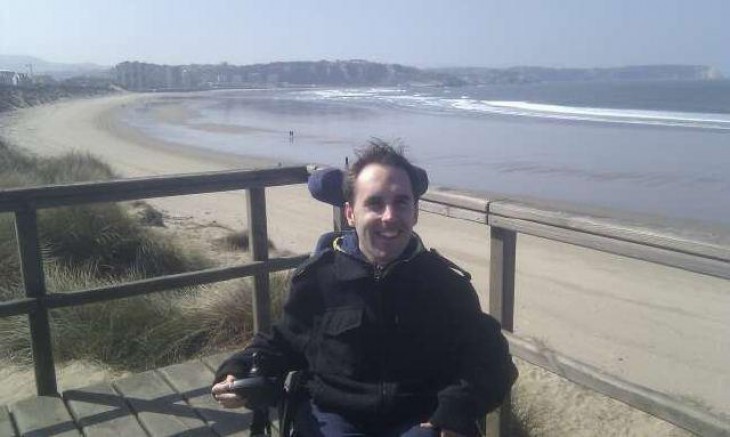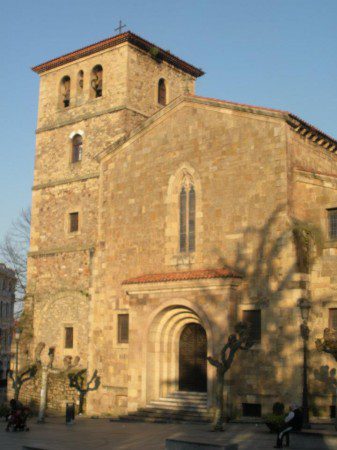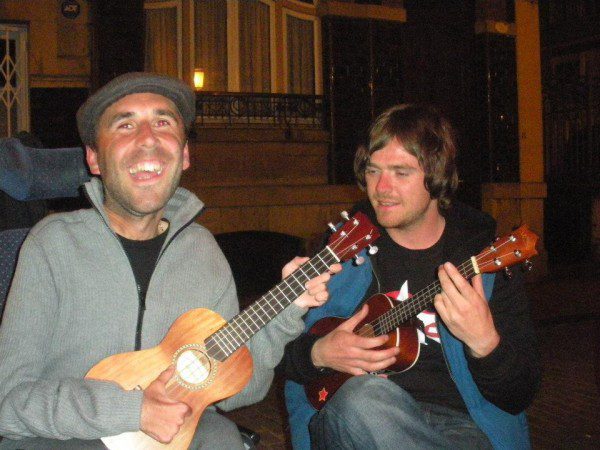
Volunteering in Spain and discovering new horizons
Disability Horizons Co-Editor, Martyn Sibley, recently came back from a two month volunteering project in Aviles, Spain with the European Voluntary Service and shares this article reflecting on life abroad.
It has been a crazy few months for me! Having left my day job last summer, with plans for new disability projects and for personal travel; I have been enjoying the benefits of sticking with my dreams and vision. My blog, this magazine alongside Srin, my e-learning projects (the webinars and employment ecourse) and my general antics have been growing, reaching more people and attracting some attention from influencers in our circle.
Today I wanted to summarise my thoughts on living in Spain for 2 months. I know you saw a couple of videos and ‘of the moment’ thoughts I had out there. Since I have been in the UK, I have found time (somehow besides randomly going on a training course in Turkey for a week, working for a company in Tenerife, meeting government ministers, and seeing my family) to reflect on this amazing experience.
It has been pointed out that I often overlook the magnitude of a challenge I have overcome. I generally have an idea or a life dream, analyse the barriers in the way, set about finding solutions and work until I get there. This often involves thinking out of the box with disability related barriers, and pestering certain people to help. Spain was very much a ‘lifelong’ dream, with huge barriers and it took ages to make it possible.
The reason it is important to note the size of this trip isn’t for me to feel great about it, but to use this as a positive message to you guys. Everyone has life dreams, I do believe everything is possible, but it can take what feels like forever. You just have to give it a go and stick at it!
Going to Spain was not because of qualifications, it was not because I am rich (I’m self-employed here), and it was not because of ‘who I knew’. I heard of the European Voluntary Service through a friend, did lots of research into the program, searched for many months for an accessible social project to apply for, contacted people who could help, waited, pestered a little, and wrapped things up once things fell into place. After 18 months of pushing, I set off for Aviles, in Spain, with my needs supported, full accessibility and program funding behind me. By “supported” I mean with an electric bed, adapted shower, shower chair, funding for my Personal Care Assistants to travel to work with me in Spain, and a very understanding coordinator.
In Aviles, I was teaching, delivering talks, running my own radio show and learning Spanish. I think you also picked up on the cool people I lived with in the hostel, the expeditions to the mountains, and of course a few drunk nights. So what did I take away from all of this?
On a personal level I struggled a little in the first week. The realisation that I was away from my home, in an unfamiliar place with a new language, and in some ways all alone was hard. To have got through this period and become very settled there showed me an inbuilt strength I didn’t know I had. In general I gained new skills in training, great experience with youth work, a base understanding of the Spanish language, the memories of new places and lasting friendships.
To pick up on the friendships aspect I wanted to share the interesting elements of cultural diversity. I lived in a hostel with 5 other people. They were from Ireland, Germany, Greece, Croatia and Finland. I also became great friends with people in the organisation and eventually I made some friends from the local community too. I was very struck by how ‘english/british’ I am. Whether talking economics, politics, music, food or sport; we all brought a perspective that somehow fitted our countries stereotypes. On my training beforehand in Leeds I learnt about gestures that could be ok in one country, but rude in another.
However, I hadn’t prepared for this feeling of difference in my own identity in comparison to others. Despite this sometimes isolating feeling, I managed to channel it positively. In the end I understood my own identity, that other people have different backgrounds (personally and as a country) that shape their views, and that difference in people is healthy and interesting.
I finally wanted to pick up on the access of Spain, and share my views of the general differences for disabled people there. Overall there are the same problems as using a wheelchair in the UK. If there are steps, weird attitudes or lack of process in organisations; I am disabled. However with ramps, good attitude and training of staff; life is on easy street.
The access in Aviles was not great. Many bars and cafes had a step or two. When the weather was good, sitting outside was perfect. Unfortunately the weather in the region of Asturias is generally cold and wet this time of year. Therefore I was either carried by people (not great) or confined to a more accessible place.
Eventually, I was able to find enough accessible places to go to, but it just took a while to uncover such places. The transport was very good with ramps on most buses and trains. The issue was finding an accessible vehicle to go off the ‘beaten track’ sometimes.
The attitude of people in Aviles was amazing! The organisation I worked for had a ramp made for me, the local disability organisations helped me get accessible transport, and local people were always friendly. I could sense that disabled people were just starting to progress more towards independent living and societal inclusion.
In the end some things were better than the UK (certainly people willingness to jump in and help) and some things were worse (access to many buildings), but the overall fight for social change is the same. As individuals demand and gain inclusion to school, work and leisure; society in general will understand disability better.
I could go on forever about personal development and disability globally, but I shall sign off here. If you have any questions on EVS, travel, disability or anything else do you get in touch.
Finally, I want to thank Chris Fisher (Leonard Cheshire), Clair Brown (Everything is Possible), The British Council, and Vane Moreno (Europa Aqui) for making all this happen. Vane has been the best coordinator and now a lifelong friend.
By Martyn Sibley
For more incredible travel stories visit our Travel section. If you have a story you’d like to share, get in touch by emailing us at editor@disabilityhorizons.com, tweeting us at @DHorizons or messaging us on Facebook.

